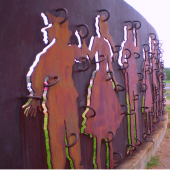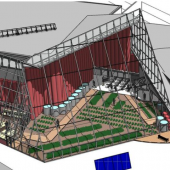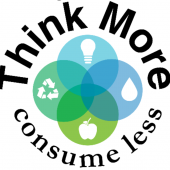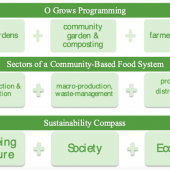
Abstract: In this article, I view Alvarez Armando’s “We the People” sculpture in Gallup, New Mexico, through the lens of Plato’s “Allegory of the Cave” and argue that although the message of the “We the People” art installation is to illustrate democracy and freedom, its staticity may contradict its intent and adds an additional layer to its interpretation. The “We the People” art sculpture invites interaction, but interaction, like in Plato’s “Allegory of the Cave,” is limited in scope and perception. My exploration comes with questions about the meaning of cave dwelling and enlightenment. What is the meaning of “We the People” when equality is not something every citizen can take for granted? Are we then an enlightened society that think we have gained exit from cave dwelling when freedom and a particular interpretation of democracy is not designed for everyone?
Continue Reading
Abstract: The new educational revolution of Educating for Sustainability needs to be taught in a new, revolutionary teaching space; a teaching bioshelter. Drawing on the five ecological principles of the Center for Ecoliteracy, this new teaching space should reflect ecocentric design principles, rather than the previous anthropocentric industrial designs of our current school and college classrooms and campuses. A solar-powered, living classroom, a system of systems, such as a teaching bioshelter, opens new educational horizons by providing continuously available and hands-on learning environments not currently available to the Educating for Sustainability (EfS) curriculum. Fortunately, the architectural and technical design work for these kinds of spaces was pioneered nearly 50 years ago by numerous cutting-edge research groups, such as the New Alchemy Institute. It is suggested that these two ecological flows, of design and education, be joined to enhance and expand the mission of Educating for Sustainability.
Continue Reading
Abstract
On campuses across the world, faculty, staff, and administrators continue to wrestle with how best to foster a stronger sense of belonging and community among first-year college students. Research in the field of education for sustainability (EfS) suggests that utilizing a cohort-based approach to sustainability education can lead to a number of positive outcomes for participating students and the broader campus culture. Meanwhile, student affairs research demonstrates the value of living/learning communities (LLCs) in supporting undergraduate students as they transition to college. This paper showcases the experience of Hobart and William Smith Colleges in implementing a sustainability-themed LLC on its campus, highlighting how one institution is utilizing sustainability education to build community among first-year college students.

Abstract: This program feature documents our reflections on how the work of O Grows, is, or more accurately has become, increasingly sustainability-oriented. O Grows is a non-profit, community-university partnership with the mission to leverage the local capacity in service of community food needs. Specifically, we focus here on how engagement with an increasing number of sectors of the local food system, as we work toward this mission, has demonstrated a commensurate increase in alignment with the cardinal directions of the sustainability compass—attention to Nature, Society, Economy, and Wellbeing. We have realized, as O Grows has evolved, that keeping the program going and attending to sustainability are one and the same. As such, we argue the sustainability compass is a useful heuristic not only for reflection after-the-fact but also for partnership planning.
Continue Reading